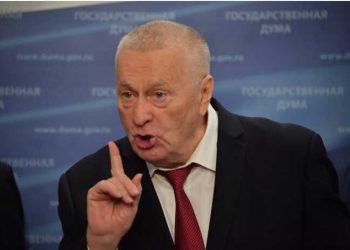Valery Rashkin will not leave without the Supreme Court
Ex-deputy of the State Duma from the Communist Party of the Russian Federation Valery Rashkin appealed to the Supreme Court against the decision of the State Duma to deprive him of his mandate, adopted after the entry into force of the verdict in the criminal case on illegal hunting. Kommunist argues that this decision was politicized and, moreover, was made in a hurry and with gross procedural violations.
Valery Rashkin, a former State Duma deputy and ex-head of the Moscow city committee of the Communist Party of the Russian Federation, filed a lawsuit with the Supreme Court of the Russian Federation, in which he asks to invalidate the decision of the State Duma of May 25 to deprive him of his powers due to the verdict in the case of illegal hunting and to restore his deputy status. He told TASS about it today. The communist specified that he had sent a complaint by mail, as he would be in Saratov in the near future.
As the lawyer of the former deputy Kirill Serdyukov explained to Kommersant, Valery Rashkin is appealing to the decision of the Constitutional Court of April 12, 1995 in the case of the interpretation of a number of articles of the Constitution. It notes that acts of parliament should embody the interests of the majority in society, and not just the parliamentary majority, while the decision taken by the State Duma was of a pronounced political nature.
In addition, Mukhamed Bidzhev, a lawyer from the Moscow City Committee of the Communist Party of the Russian Federation, told Kommersant that the very decision of the State Duma to deprive the deputy of his powers was adopted with gross procedural and procedural violations.
In particular, the Duma credentials committee did not even meet in person to consider this issue.
And the deputies were in such a hurry to deprive colleague Rashkin of his powers that they did not even wait for a reasoned decision of the court of appeal: it was made only a few days after the Duma adopted its decision, and at the same time the court sent an official confirmation to the State Duma, attaching everything Required documents. Meanwhile, reminds Mr. Bidzhev, the Duma is not in vain given the authority to approve the decision to deprive them of their powers: it is obliged to evaluate, including the validity of the verdict. This is an additional guarantee for the deputies to exercise their powers, and if it were absent, then there would be no need to discuss such a decision, the lawyer emphasizes. In his opinion, the function of the State Duma in this case is quasi-judicial, similar to resolving the issue of impeachment of the president. But in this case, it turns out that the deputies made the decision without being properly aware of the essence of the issue, adds Mukhamed Bidzhev.
It should be noted that when discussing the “Rashkin case” at the plenary session on May 25, Ernest Valeev (United Russia), First Deputy Chairman of the Duma Credentials Commission, already answered some of the questions raised now in Valery Rashkin’s lawsuit. In particular, United Russia rejected accusations of unnecessary haste, stating that the 30-day period established by law for the Duma to respond to a verdict that has entered into force does not prevent an earlier resolution of the issue, and “spreading out consideration of the issue of termination of office is contrary to the ethics of a deputy.” And in response to the demand of the Communist Party of the Russian Federation to understand the essence of the criminal case, Mr. Valeev referred to the article of the Constitution on the separation of powers and called on the Communists not to involve the Duma “in the discussion of issues unusual for it.”
Earlier, Valery Rashkin has already applied to the Constitutional Court with a request to clarify who exactly is authorized to challenge the decision to deprive him of his deputy powers. But the secretariat of the court returned the appeal, citing its inconsistency with the requirements of the law on the Constitutional Court. The press service of the court then explained that the Constitutional Court could not accept the complaint, since there was no specific court case, which means that Mr. Rashkin had not exhausted all the remedies.
The head of the Petersburg Politics Foundation, Mikhail Vinogradov, notes the “inertial nature” of the lawsuit: in his opinion, one should hardly count on political dividends. For voters of the Communist Party, the topic as a whole has been lost and has lost its relevance, the expert believes. And it is also important for the communists themselves to “disarm before the authorities” and show that they are no longer in the protest movement, sums up Mr. Vinogradov.












